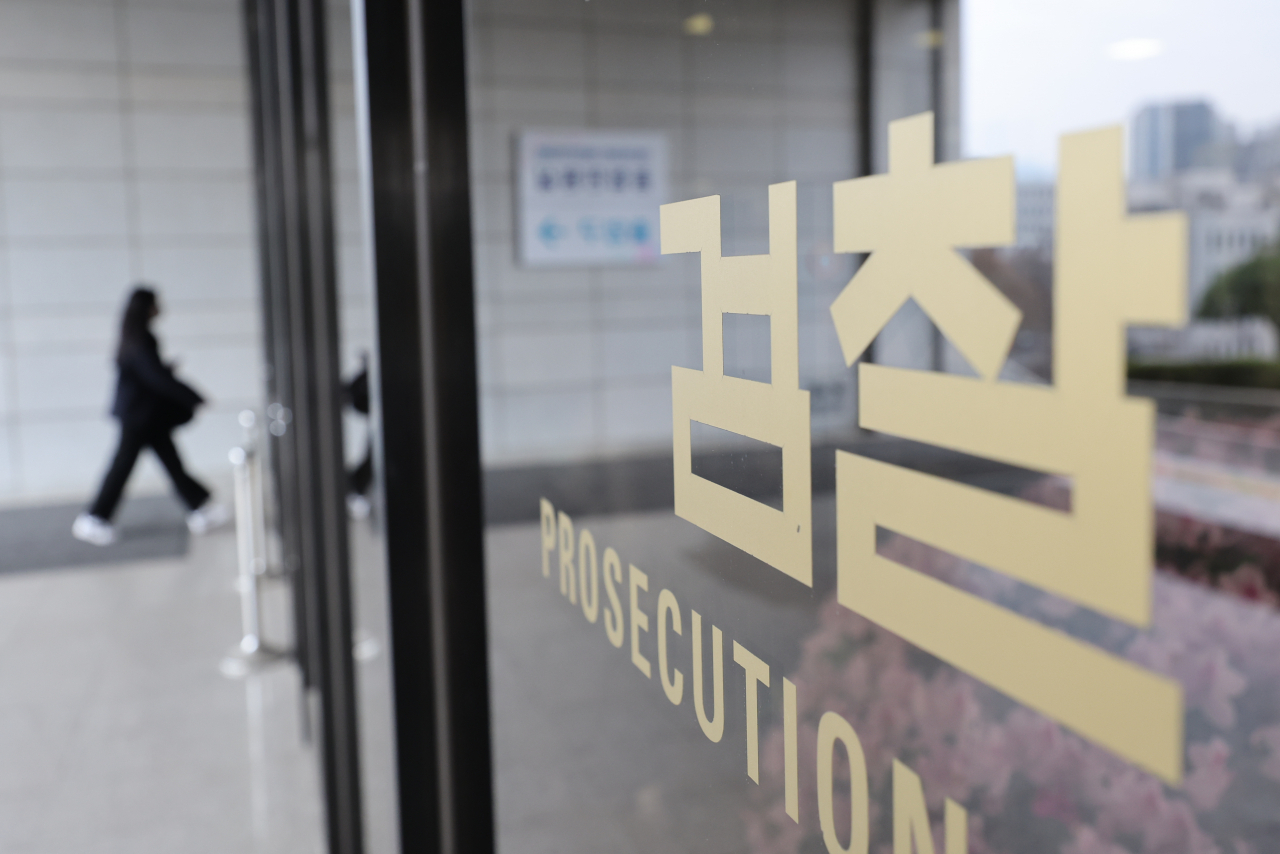Prosecution starts looking into 'black money’ confession of ex-president's grandson
By Yoon Min-sikPublished : March 22, 2023 - 15:10
South Korean prosecutors on Wednesday said they are reviewing allegations of illicit funds surrounding late ex-President Chun Doo-hwan’s family, sparked by Chun’s grandson’s recent confession on social media that his family was “living off black money.”
According to the Seoul Central District Prosecutors’ Office, the case has been allocated to the Criminal Proceeds Recovery Department to see if the disclosure made last week by Chun Woo-won -- the grandson in question -- constitutes a criminal allegation against the Chun family. The junior Chun posted a series of videos on his Instagram account accusing his family and acquaintances of various forms of misconduct.

According to him, his father -- the second son of the former South Korean leader -- fabricated legal documents to hide his crimes, and is planning to use the illicit funds that the former president accumulated during his dictatorial rule of South Korea, which the entire family is allegedly living off of.
The prosecution’s action came after a civic group, calling itself the Public Welfare Countermeasures Committee, on Tuesday filed complaints against the former president’s wife, his three sons and his daughter for violating the Act on Regulation and Punishment of Criminal Proceeds Concealment amid various allegations.
“The Chun family is living a lavish life with the slush fund that they have hidden, and they have even managed to bequeath a fortune to their descendants,” the group said, saying that the money should be recovered by the authorities and the family must be punished.
The validity of Chun Woo-won's claims remains unclear as of now, as he has yet to provide concrete proof to back them up.
Ex-President Chun -- whom the grandson also accused of mass-murdering the demonstrators during the 1980 Gwangju Uprising -- was a dictator who rose to power via a military coup and stayed in office until stepping down in 1988, a year after nationwide protests reinstated direct presidential elections.
In 1997, he was sentenced to death for his role in the suppression of the Gwangju Uprising, the military coup, bribery and other charges, and was ordered to pay a penalty of 220.5 billion won ($168.6 million). Although he was later pardoned by then-President Kim Young-sam, the financial penalty remained.
Despite a decades-long search to seize the penalty from Chun, 95.6 billion won remained unpaid and the case effectively closed when the former strongman passed away in 2021. In South Korea, the bereaved family does not have the legal obligation to pay the penalty remaining from the deceased.
While the revelations from Chun’s grandson have sparked the probe and nationwide interest in the former South Korean leader’s illicit funds, it is unclear how much of the money can actually be confiscated by the authorities, if at all. According to Article 9 of the Act on Regulation and Punishment of Criminal Proceeds Concealment, money acquired via a criminal act can be confiscated from persons other than the criminal -- in this case, the Chun family -- if they had acquired it with knowledge of the crime.
As such, officials would have to prove that the Chun family had known the money they used for various businesses was obtained via illegal means, which is why the prospect of recovering the nearly 100 billion won in unpaid penalty funds has been grim since Chun’s death.


















![[KH Explains] Hyundai's full hybrid edge to pay off amid slow transition to pure EVs](http://res.heraldm.com/phpwas/restmb_idxmake.php?idx=652&simg=/content/image/2024/04/18/20240418050645_0.jpg&u=20240418181020)

![[Today’s K-pop] Zico drops snippet of collaboration with Jennie](http://res.heraldm.com/phpwas/restmb_idxmake.php?idx=642&simg=/content/image/2024/04/18/20240418050702_0.jpg&u=)